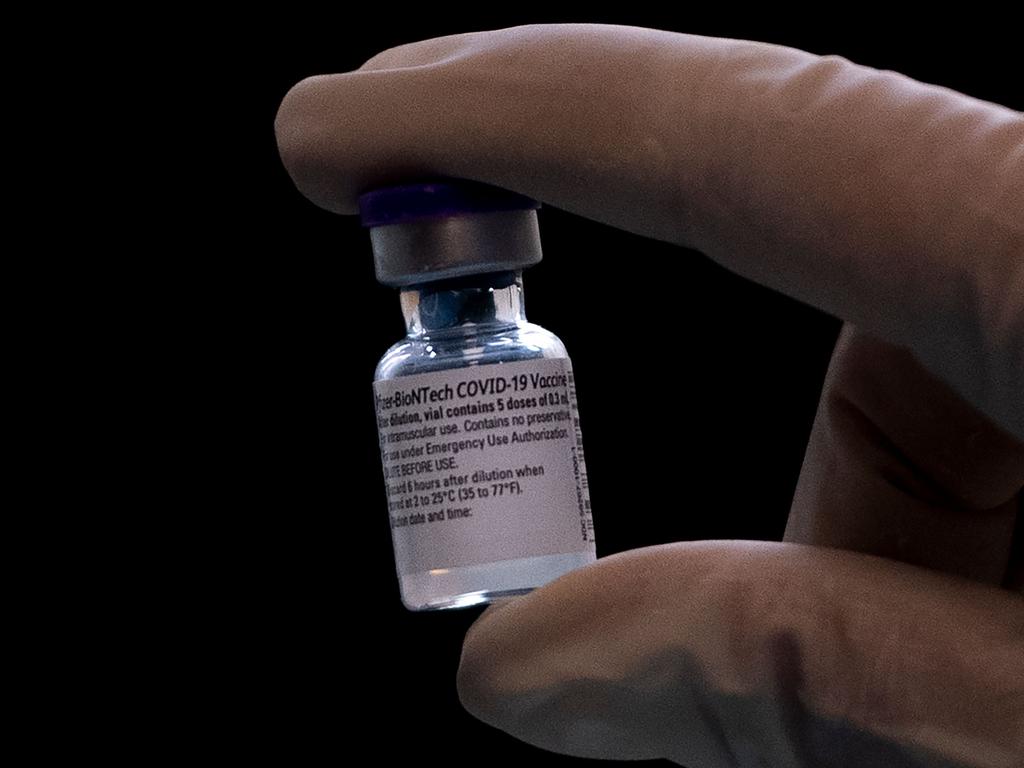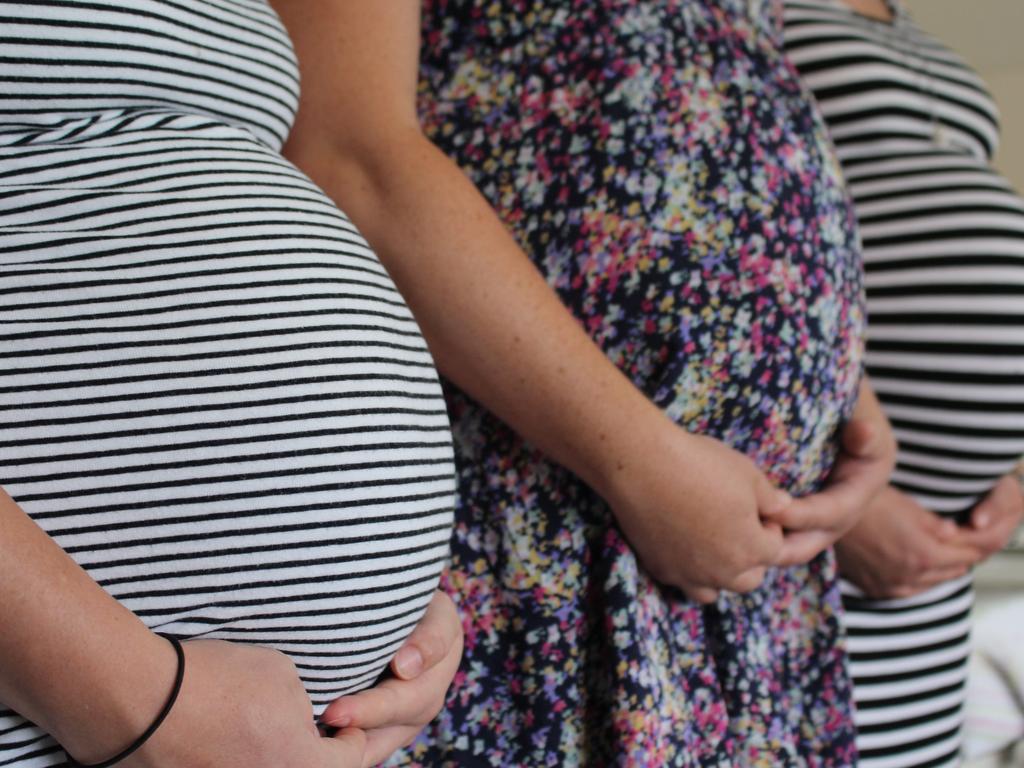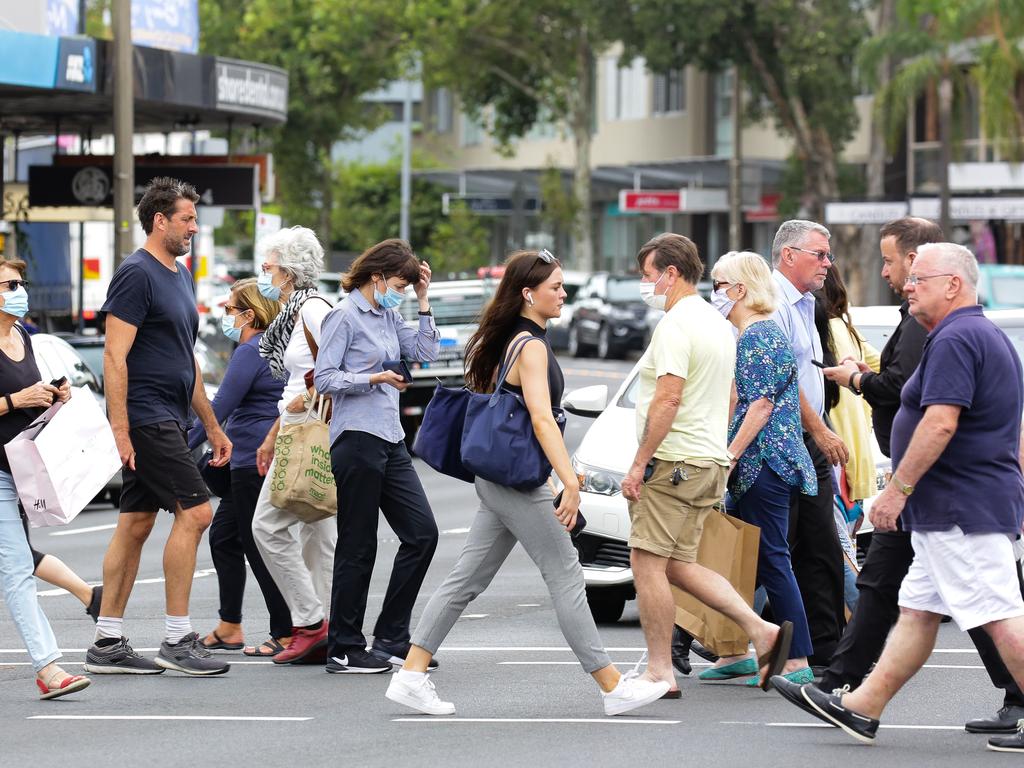All your questions about the COVID-19 vaccine rollout answered
The start of the COVID-19 vaccine rollout is just weeks away – and Aussies have a lot of questions. Here is everything you need to know.

In just a few week’s time, the first Australians will be given the COVID-19 jab.
The Government has outlined a detailed vaccination plan, including when each person will get the vaccine, which jab they will receive and how many people will be included in each phase of the rollout.
The Therapeutic Goods Administration (TGA) approved the Pfizer-BioNTech vaccine on January 25 and is now working on approval the Oxford-AstraZenca vaccine.
News.com.au asked its readers to send through any questions they had about the COVID-19 vaccine and the imminent rollout as part of the Our Best Shot campaign.
We’ll debunk myths about vaccines, answer your concerns about the jab and tell you when you can get the COVID-19 vaccine.
Here are the answers to all the burning questions you had.
What are the side effects of the vaccine and what ingredients does it contain?
The most commonly reported side effects for both the Pfizer and AstraZeneca COVID-19 vaccines are pain at the injection site, tiredness, headache, muscle pain, chills, joint pain, and fever.
The ingredients in the Pfizer vaccine include:
• mRNA, the encoded portion of the coronavirus spike protein. This is used to create an immune response to the virus.
• Lipids (including ((4-hydroxybutyl)azanediyl)bis(hexane-6,1-diyl)bis(2-hexyldecanoate), 2 [(polyethylene glycol)-2000]-N,N-ditetradecylacetamide, 1,2-Distearoyl-sn-glycero-3- phosphocholine, and cholesterol). These form a shell around the mRNA and allow it to be delivered into the body.
• Potassium chloride, monobasic potassium phosphate, sodium chloride and dibasic sodium phosphate dehydrate. These are used to maintain the pH and stability of the vaccine
• Sucrose (sugar), which is used as a stabiliser.
RELATED: Scott Morrison’s warning before vaccine rollout

The ingredients in the AstraZeneca vaccine include:
• The active ingredient is made from a modified adenovirus, which causes the common cold in chimpanzees. It cannot cause an infection and is used to deliver the genetic code for the coronavirus spike protein.
• L-histidine the amino acid and L-histidine hydrochloride monohydrate can be used to keep the right PH balance.
• Magnesium chloride hexahydrate, sodium chloride and sucrose, which are often used to maintain the pH and stability of the vaccine.
• Polysorbate 80, which is a common food additive and is used in some vaccines as an emulsifier.
• Disodium edetate dihydrate, which is used a preservative and to stabilise the vaccine.
• Ethanol
• Water, which is used to provide the liquid component of the diluent.
Can you get the vaccine if you have allergies or severe medical issues?
Experts say that in rare cases there is a remote chance that the Pfizer and AstraZeneca vaccines cause a severe allergic reaction.
The vaccines should not be given who people who have had a previous severe allergic reaction to a previous dose of the same COVID-19 vaccine or an ingredient in the COVID-19 vaccine.
Like many other vaccines, this is one reason why you may be asked to stay for monitoring after you receive the COVID-19 vaccine.
Worldwide, there have been 21 reported cases of anaphylaxis after reported administration of 1,893,360 first doses of Pfizer-BioNTech COVID-19 vaccine. Of those people, 17 had existing allergies.
Will you receive a document to prove you’ve had the vaccine?
The Government announced Australians will get a “digital certificate” when they receive a COVID-19 jab, which will be stored and displayed on the Express Plus Medicare and MyGov apps.
Those who require a hard copy will be able to access a printout from vaccine providers and Services Australia offices.
Can you choose which vaccine you get?
The Government has already established its COVID-19 vaccine rollout strategy and outlined which groups will receive which jab.
This means it is unlikely residents will be able to choose which vaccine they receive.
The vaccines will be rolled out in five different phases, with the first step, Phase 1a covering frontline healthcare workers, quarantine and border workers, aged care and disability care staff and aged care and disability care residents.
This group will likely receive the Pfizer vaccine, as it has already been approved by the TGA, with the majority of the population then receiving the AstraZeneca vaccine.
Is the vaccine safe for pregnant or breastfeeding women?
Pregnant women, breastfeeding mums and children will be excluded from Australia’s COVID-19 vaccination program until there’s better evidence of safe dosages.
RELATED: Threat to Aussie vaccine supply

Infectious diseases expert Professor Peter Collingnon from the Australian National University told news.com.au that it was safer to wait.
“It’s hard to see why the vaccine would be worse with pregnancy, but the trouble with these new vaccines if you want to see some data,’’ Prof Collingnon said.
“Particularly with Australia, where we’ve got minimal cases of community transmission, I think if we can wait a month or two for more data. I think we would probably have that data by winter.”
When can you travel internationally again?
In January, Australia’s top predicted borders will remain closed until 2022, dashing hopes of international travel this year.
“I think that that is a big question. I think that the answer is probably no,” Health Department chief Brendan Murphy told the ABC after being asked if borders would reopen this year.
However, he did say the sooner the population is vaccinated, the sooner international travel could return.
However, there could be more travel bubbles in the works, with Prime Minister Scott Morrison revealing Australia was working on travel agreements with Pacific Island nations such as Fiji, Vanuatu, Tonga and the Solomon Islands.
How effective are the vaccines?
Clinical trials have found two doses of the Pfizer vaccine is about 95 per cent effective in preventing coronavirus infection.
Phase three clinical trials of the AstraZeneca vaccine show a efficacy of about 76 per cent after the first dose, with that protection maintained until the second dose.
Earlier this year German daily papers Handelsblatt and Bild cited reports claiming the AstraZeneca vaccine had an efficacy of less than 10 per cent in people aged over 65.
However, the pharmaceutical company strongly denied the claims, labelling them “completely incorrect”.
Can you have shots of both the Pfizer vaccine and the AstraZeneca vaccine?
Both these vaccine candidates require two doses a few weeks apart to be effective. You will need to get a shot of the same vaccine candidate both times, rather than switching between the two
“All the evidence would suggest that you’re better off having, you need the same vaccine for the second dose to give you the best immune protection. It would be silly to mix and match,” Health Department Chief Professor Brendan Murphy told news.com.au.
Will you need to have the vaccine every year like a flu shot?
It is not yet known whether the COVID-19 vaccine will need to be administered each year like the flu vaccine.
To prepare for this scenario, scientists are already working on booster jabs for the existing COVID-19 vaccines if some of the current candidates prove to be ineffective to mutant strains of the virus.

Who is considered a critical or frontline worker?
The Government has already announced that specific high-risk groups like critical workers will be the first to get the COVID-19 vaccine.
Phase 1a of the rollout will include quarantine and border workers, aged care and disability care staff and aged care and disability care residents.
Also included in this group are “frontline health careworker subgroups for prioritisation”.
The Government has not yet outlined exactly what subgroups will be included in this phase but there is speculation it could cover paramedics, emergency department staff, COVID-19 medical ward and ICU staff, those working in respiratory and fever clinics and staff at virus testing centres.
The second stage, Phase 1b, will cover “critical and high-risk” workers, including the defence force, police, fire crews, emergency services and meat processing staff.
All other critical and high-risk workers that don’t fall into the previous categories will be included in the Phase 2a of the rollout.
I’m not an Australian Citizen or Permanent Resident, can I still get it?
The Government has confirmed the COVID-19 vaccine will be available for free to everyone living in Australia.
This will include refugees, asylum seekers, temporary protection visa holders and those on bridging visas.
People currently residing in detention facilities will also be eligible, including those whose visas have been cancelled.
“It is vital that we offer vaccines to all people living in Australia to achieve the maximum level of coverage,” Prime Minister Scott Morrison said.
Do you still need the vaccination if you have recovered from COVID-19?
The short answer is, yes.
Experts still don’t know how long someone has an immunity to COVID-19 after recovering from the illness and the immune response could differ from person to person.
In order to ensure Australia achieves herd immunity, people will likely be encouraged to have the vaccine regardless if they have previously had coronavirus.
Do you have any questions about the vaccine you’d like answered? Submit one below




